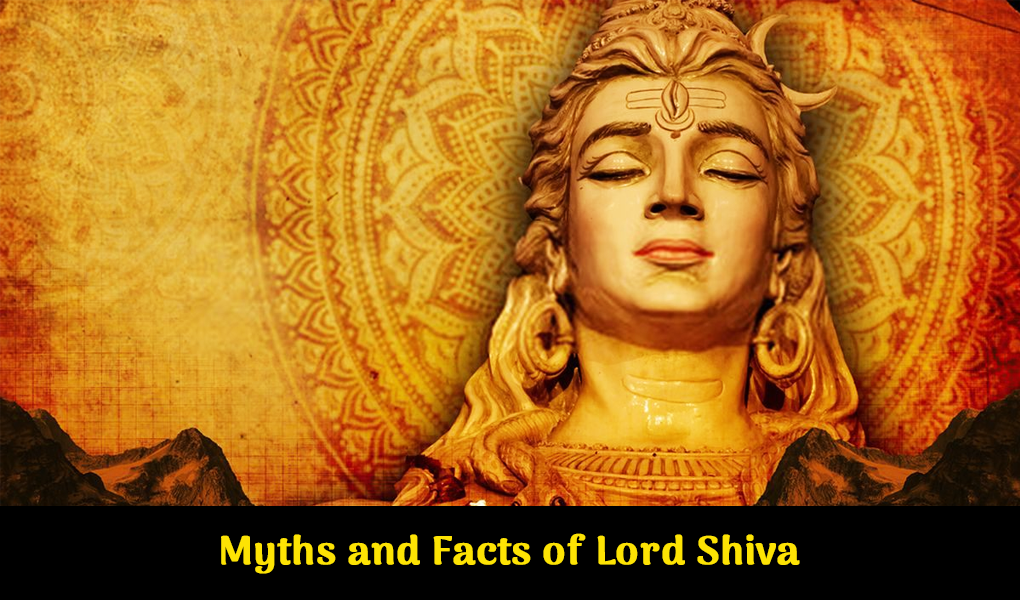10 Myths and Facts About Lord Shiva in 2023: Powerful Truths
Introduction
Lord Shiva: The Enigmatic Deity
In the pantheon of Hindu gods, Lord Shiva stands as one of the most enigmatic and revered deities. His multifaceted nature is veiled in myths and misconceptions that often cloud our understanding. In this exploration, we unravel the truths about Lord Shiva, dispelling myths to reveal the profound essence of this divine figure. Get to know more about 10 Myths and Facts About Lord Shiva
Myth 1: Lord Shiva is Just a Destroyer
The Misunderstood Role of Shiva
One of the common misconceptions is that Lord Shiva’s role is solely that of a destroyer. While destruction is a facet of his cosmic duties, it’s essential to recognize that Shiva’s role extends far beyond this aspect. Its one of the 10 Myths and Facts About Lord Shiva
Understanding Shiva’s Role in the Cosmic Balance
Shiva’s destruction is a necessary part of the cosmic balance, making way for regeneration and renewal. He symbolizes the eternal cycle of creation, preservation, and dissolution.
Myth 2: Shiva is a Wrathful God
The Multifaceted Personality of Shiva
Lord Shiva’s character is often oversimplified as that of a wrathful god. However, Shiva embodies a spectrum of emotions and characteristics, ranging from fierce to benevolent. There is more to 10 Myths and Facts About Lord Shiva
Shiva’s Compassion and Benevolence
Shiva’s compassion is evident in his role as a protector and nurturer. He extends his grace to seekers and devotees, guiding them on their spiritual journeys.
Myth 3: Shiva is Only Worshipped by Ascetics
Shiva’s Diverse Group of Devotees
While ascetics find solace in Shiva’s teachings, his appeal spans across diverse walks of life. People from all backgrounds, including artists, scholars, and householders, revere Lord Shiva.
The Appeal of Shiva in Different Walks of Life
Shiva’s universality lies in his teachings of detachment, self-realization, and the pursuit of inner divinity, principles that resonate with people from various paths.
Myth 4: Shiva Has No Family Life
The Divine Family: Shiva, Parvati, and Ganesha
Contrary to the belief that Shiva leads a solitary existence, he has a divine family. His wife, Parvati, and son, Ganesha, play significant roles in his mythology.
The Symbolism of Shiva’s Family Life
Shiva’s family symbolizes the harmonious balance between asceticism and household life, emphasizing the importance of both in one’s spiritual journey.
Myth 5: Shiva is Exclusive to Hinduism
Shiva’s Presence Beyond Hinduism
While Shiva holds a prominent place in Hinduism, his influence extends beyond the confines of this religion. He has left his mark on Buddhism and various other faiths.
Shiva’s Influence on Buddhism and Other Faiths
Shiva is revered as a Bodhisattva in Buddhism, exemplifying his cross-cultural significance as a divine and spiritual figure.
Myth 6: Shiva is a Historical Figure
Shiva as a Mythical and Symbolic Figure
Shiva transcends historical boundaries; he is a mythical figure whose existence spans beyond the confines of time and space. His symbolism reflects the eternal nature of the cosmos.
The Timelessness of Shiva’s Existence
Shiva’s mythological presence allows us to contemplate timeless truths about life, death, and the cyclical nature of existence.
Myth 7: Shiva is Always in Deep Meditation
Shiva’s Meditative States and Cosmic Significance
While Lord Shiva is often depicted in deep meditation, this imagery holds profound cosmic significance, signifying his role as the source of creation, preservation, and dissolution.
Shiva’s Active Role in the World
Shiva’s meditative states serve as a representation of his transcendent consciousness, from which the universe emanates. His meditative posture signifies his eternal vigilance over the cosmos.
Myth 8: Shiva is Associated Only with Destruction
Shiva’s Creative and Preservative Aspects
While Shiva is indeed the god of destruction, he also embodies the creative and preservative aspects of the divine trinity. He nurtures life and balances the cosmic forces.
The Cycle of Creation, Preservation, and Destruction
Shiva’s essence lies in the harmonious interplay of these cosmic roles, illustrating the cyclical nature of existence itself.
Myth 9: Tantra Worship is Complex and Inaccessible
Simplifying Shiva Worship: Approaches for All
Tantra, a path that worships Shiva, may seem complex, but it offers accessible approaches for seekers at all levels. It provides practical tools for spiritual growth and self-realization.
The Universality of Shiva Bhakti
Devotion to Lord Shiva transcends complexities, emphasizing the universal appeal of his teachings to those seeking spiritual fulfilment.
Myth 10: Shiva is a God of the Past
Shiva’s Relevance in the Modern World
Far from being a deity of the past, Lord Shiva’s teachings remain profoundly relevant in our modern lives. His wisdom guides us in navigating the complexities of the contemporary world.
The Timeless Teachings of Lord Shiva
Lord Shiva’s eternal truths inspire seekers, offering guidance and solace in an ever-evolving world.
Demystifying Lord Shiva: A Recap
Embracing the Complexity and Diversity of Lord Shiva’s Nature
By dispelling myths and delving into the multifaceted nature of Lord Shiva, we gain a richer understanding of this revered deity, enriching our spiritual journeys.
Conclusion on 10 Myths and Facts About Lord Shiva
The Ever-Intriguing Mystique of Lord Shiva
Lord Shiva, with his enigmatic nature, continues to captivate the hearts and minds of devotees worldwide. In understanding the myths and realities surrounding him, we find a wellspring of inspiration and wisdom to guide us on our own spiritual quests.
Check out 1 Face/ Mukhi Rudraksha

